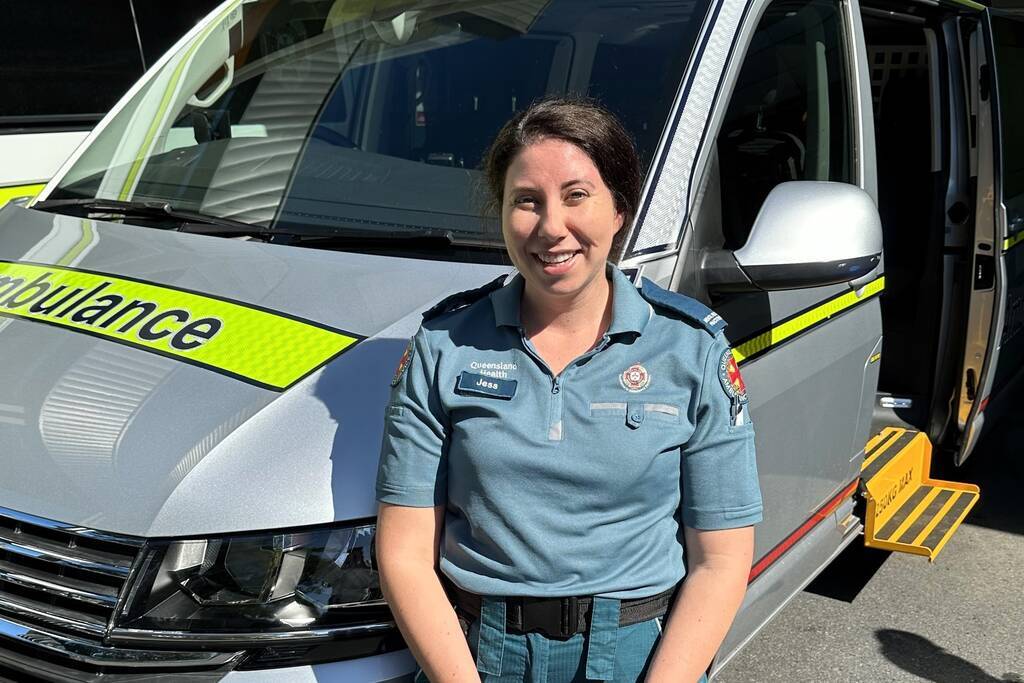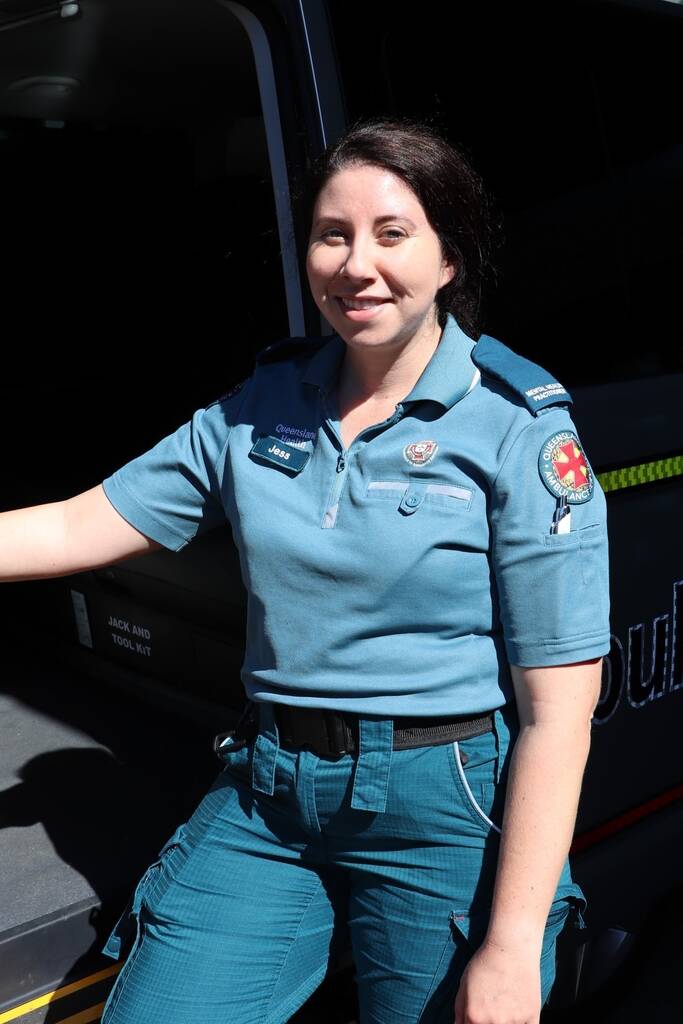
They say if you love your job, you’ll never work a day in your life.
For Queensland Ambulance Service's (QAS) Mackay-based Co-Responder Jessica Pulis, that’s more than just a saying...it’s a reality.
Jessica’s healthcare journey began with a bachelor’s degree in occupational therapy (OT) and after gaining experience in hospitals, she decided to pursue a master’s degree to further develop her skills and knowledge in mental health support.
“It’s fascinating, I really like it,” Jessica said.
“When someone is in crisis, you’re the first person they see, and you have the ability to change the outcome for them.
“It’s about providing the best possible care at the moment they need it – that’s what makes it a really cool thing.”
Jessica’s dedication to helping people in crisis is evident in her dual roles as a QAS Mental Health Co-responder and a Mackay Hospital and Health Service (HHS) Crisis Support Worker at Safe Harbour.
As part of the QAS Mental Health Co-responder team Jessica provides support to people experiencing mental health emergencies.
“Our work has significantly impacted the community by diverting individuals from emergency departments (ED) and connecting them with more appropriate mental health support,” Jessica explained.
“We aim to divert people from the ED to ensure they receive the help they need, often through timely referrals.
“During a call, my role is to assess the situation and determine whether they need to go to hospital or can be referred to other services in the community.”
Historically, most people calling Triple Zero (000) during a mental health crisis were transported by paramedics to a hospital ED.
But since 2019, when the program’s pilot began in southeastern Queensland, it has been instrumental in reducing ED presentations.
“In the last twelve months alone, there has been a 70 per cent diversion rate, meaning fewer people are waiting for treatment in EDs.”
The Mental Health Co-responder Program operates across a dozen regions, including Mackay, Gold Coast, and the Sunshine Coast.
Originally from Adelaide, Jessica moved to the Mackay region in 2017 and considers her current roles to be the most rewarding of her career.
“Often, the people we meet are going through a crisis," she said.
" And seeing them later on after we’ve been able to help them, is so satisfying."
"I would say to anyone thinking about a career like this, to go for it.
"If you love helping people, this is the best job."
 Since the pandemic, there has been increased attention and investment in mental health, leading to a reduction in stigma.
Since the pandemic, there has been increased attention and investment in mental health, leading to a reduction in stigma.
Jessica said the opening of facilities like the Safe Harbour Crisis Support Service at Mackay Base Hospital has significantly expanded support options in the region.
“We’ve seen a lot more initiatives designed to help people access (mental health) support services,” she said.
“In my role as a Crisis Support Worker at Safe Harbour, we use a peer-supported approach that offers a safe space for people experiencing acute mental health crisis.
“This means people aren’t going to an ED because there are people at Safe Harbour who can help.”
Similar crisis support spaces have also opened this year in Logan, Hervey Bay, Cairns, Bundaberg, and on the Sunshine Coast, offering fast access to support services tailored to the needs of those in crisis.
“Being flexible, and understanding everyone is doing their best – that’s how I see my role,” Jessica said.
“It’s about showing empathy and acknowledging that we need to support people for as long as we can.”